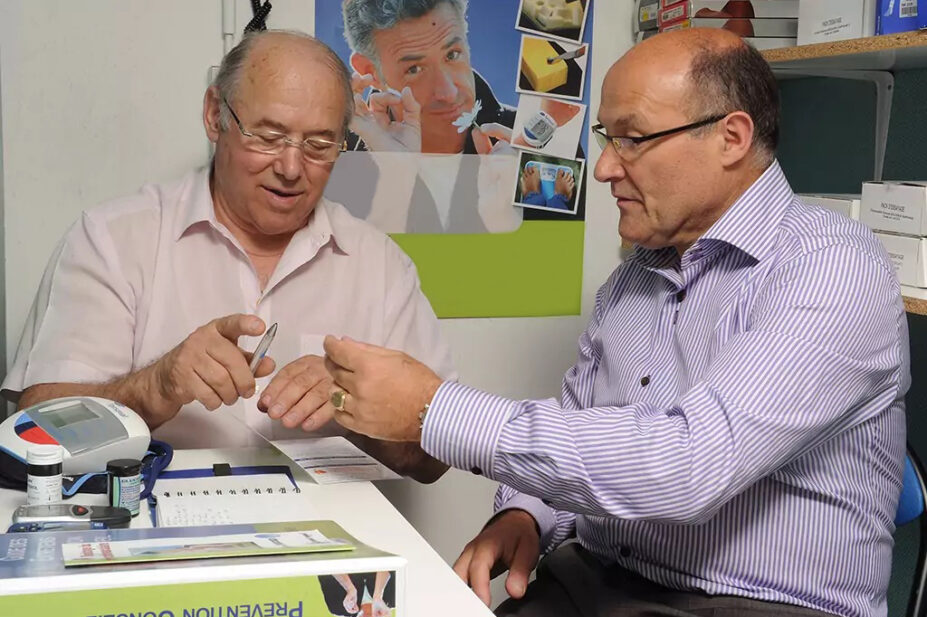
BSIP SA / Alamy Stock Photo
NHS England has published a new framework aimed to “empower” commissioners in England to better support patients who are taking prescribed drugs associated with dependence or withdrawal.
The framework, published on 2 March 2023, focuses on five types of medicines, including opioids, benzodiazepines, Z-drugs, gabapentinoids and antidepressants, and aims to reduce inappropriate prescribing in primary care where they may no longer be the most clinically appropriate treatment for patients.
However, critics have said it could take “months and years” for these services to be developed and that interim support is still needed, in the form of a national helpline.
The publication of the document, entitled ‘Optimising personalised care for adults prescribed medicines associated with dependence or withdrawal symptoms’, follows an evidence review by Public Health England (PHE), published in September 2019, which found that more patients were being prescribed more of these medicines and often for longer.
A press release published by NHS England on 2 March 2023 said the latest data show that GPs and pharmacists have helped cut opioid prescriptions in England by 450,000 in “under four years”.
However, data also show that the number of people prescribed an opioid for longer than three months has not decreased since it accelerated during the COVID-19 pandemic (see Box).
To tackle this and the overuse of other prescription drugs that may cause dependence or withdrawal, NHS England’s new framework recommends that integrated health boards across England should ensure they have commissioned regular structured medication reviews for patients taking such medicines.
The document also says alternative treatment options, such as psychotherapy, health coaching and pain or sleep clinics, should always be available for prescribers to refer to, and that healthcare professionals must have sufficient education and training to meet patients’ needs.
Tony Avery, national clinical director for prescribing at NHS England, said: “Medicines offer a fantastic range of tools for NHS staff to provide patient care and treatment that can be positively life-changing, or even life-saving. However, we need to be alert to the risks of some medicines, particularly when used over a long period of time, and the framework we are publishing today empowers local services to work with people to ensure they are being effectively supported when a medicine is no longer providing overall benefit.”
A spokesperson for the All-Party Parliamentary Group (APPG) for Prescribed Drug Dependence said that patients had experienced “often life-changing” withdrawal symptoms from medicines, such as sleeping pills and antidepressants, “for decades … with almost no support or recognition from the health service”.
“The APPG for Prescribed Drug Dependence welcomes this new framework for action from NHS England, which should lead to the delivery of services across the country to help those who are suffering,” they said.
“But it will take months and years for these services to be developed. In the meantime, we call on the government to implement its own recommendation for a 24-hour national helpline and website to support those in crisis.
“Together these initiatives will save lives, reduce suffering and bring down the costs to the public purse.”
The introduction of a national helpline and associated website to provide expert advice and support to patients was a recommendation in the 2019 PHE report.
However, minutes from a meeting of the PHE ‘Prescribed Medicines Review Oversight Group’ held in April 2022, obtained by The Pharmaceutical Journal via a freedom of information request, revealed that the Department of Health and Social Care (DHSC) would “not be taking [the helpline] forward” owing to the failure of the spending review bid.
A March 2022 PHE review recommendations update from NHS England and NHS Improvement (NHSE&I), seen by The Pharmaceutical Journal, said DHSC policy officials would be working with NHSE&I and the oversight group to look at “alternative ways” to deliver the level of support intended by this recommendation.
James Davies, director for England at the Royal Pharmaceutical Society, said the new framework was a “positive step” towards improving patient care by supporting medicine reviews and shared decision making.
“The investment in innovative approaches to supporting patients is welcome and we would like all pharmacists to be able to refer people to such schemes.
“Pharmacy teams can also often spot repeat purchases of over-the-counter medicines by patients so are well placed to intervene and give advice on the management of chronic pain,” he said.
Box: The problem with high-dose opioids
Latest data show that the number of patients prescribed an opioid for more than three months has not reduced since the COVID-19 pandemic.
In June 2022, analysis of NHS Business Services Authority data, carried out by The Pharmaceutical Journal, showed that the number of patients in England prescribed an opioid for more than three months increased sharply during the COVID-19 pandemic.
The data showed that 3,055 per 10,000 patients were prescribed an opioid for longer than three months between October and December 2019, compared with 3,918 per 10,000 patients for the same period in 2021.
However, the latest figures show that this number has continued to increase, with 3,945 per 10,000 patients prescribed an opioid for longer than three months between April and June 2022.
You may also be interested in

Voice of the Voiceless: co-produced materials to help reduce stigma for people receiving opioid substitution treatment in pharmacies

PJ view: The government’s approach to illegal street drugs should focus on treatment and prevention
